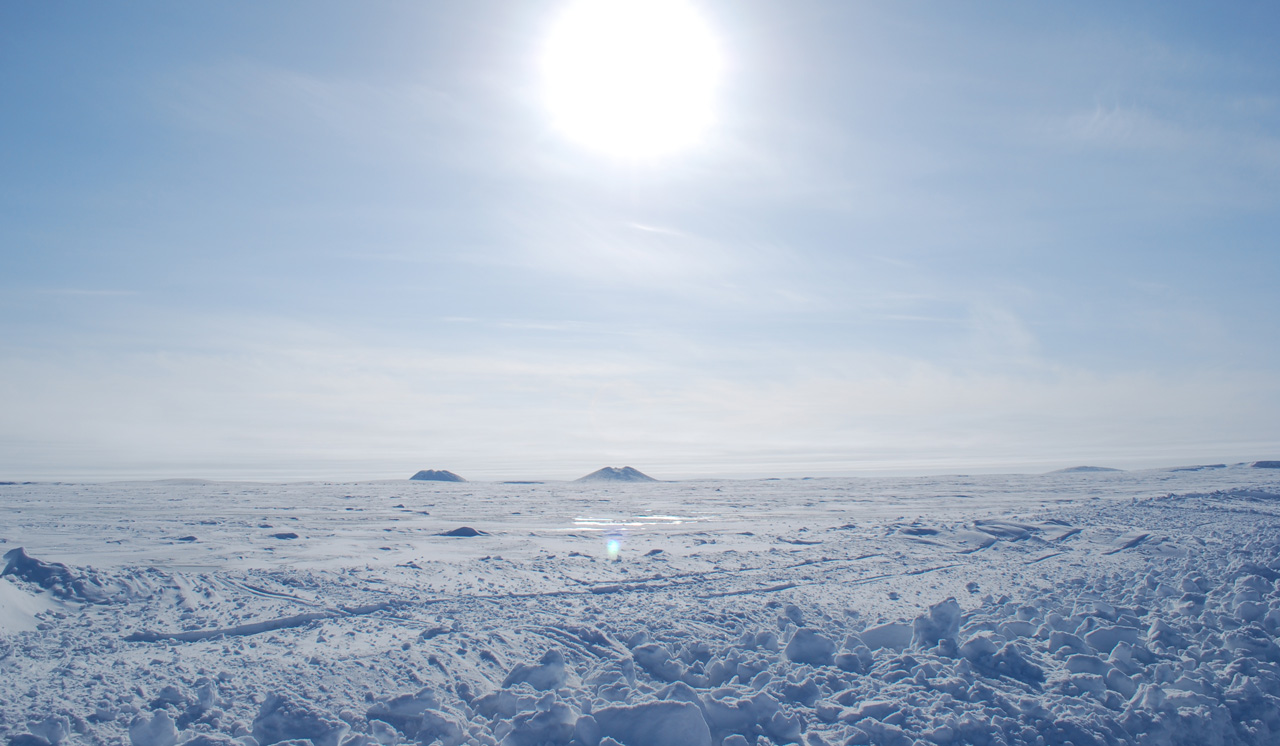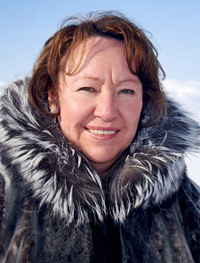

For more than 20 years, Siila Watt-Cloutier has advocated to preserve the traditional northern way of life, highlighting the impact of global climate change on the Inuit people.
She is the author of The Right to be Cold: One Woman's Story of Protecting her Culture, the Arctic and the Whole Planet.
We spoke to Watt-Cloutier to learn more about the connection between climate change and human rights-the right to be cold.
What do you love about the North that we "southerners" might not know?
The North is not well understood. It's not the dark, cold and inhospitable place that a lot of people imagine it to be. I look out my window, and I see the frozen river and a beautiful icy, rolling landscape as far as the eye can see. This place is majestic; it's surreal.
The North is home to strong communities and a culture of living on the land that gives a real sense of belonging. You develop a connection to the land, and to each other, when you share a traditional lifestyle of hunting, fishing and gathering.
A year ago, I returned to my birthplace of Kuujjuaq after many years of living away. Personally, that connection to the people and the land is what forms my memories of the past and makes me feel at home today. There's so much to love in the North.
Over your lifetime, what changes have you seen to life in the North?
For the first ten years of my childhood, I lived a traditional life of hunting, fishing and travelling by dogsled. I didn't speak English until I went to school.
In my lifetime, we've come from living a simple and humble way of life to now living in a very modern world. For the Inuit, these changes are happening at a pace that is much more rapid than in many other parts of the world.
Climate change is a second assault on our culture. The effects of climate change have been dramatic in the past 15 years. We rely on the land to build our character. The snow and ice teach us lessons in patience, courage, boldness and resiliency. On the land, we learn to take risks, be safe, and make decisions under pressure in order to hunt and survive.
As the ice, cold and snow disappear, so will the wisdom and our ways of living and teaching our values.
How have climate and environmental changes impacted the Inuit people?
We depend on the ice; it is our life force.
Because of climate change, ice forms later in the fall and melts earlier in the spring. It puts us in a precarious safety and security situation that makes even the most experienced hunters think twice about their routes. Our traditional food is also being impacted by these dramatic changes.
Imagine if your highways buckled and your homes sunk. This is what we face as the permafrost thaws and the ice thins, often preventing us from travelling and living safely on the ice and land. Now, imagine if your universities crumbled. The ice is our university; it is where we train and teach our children what they must know to be providers and natural conservationists-skills which are transferable to the modern world.
We are trying to seize opportunities and overcome the challenges at hand, but the Inuit people are struggling. Suicide rates are high in the North. How can we deal with these stressors when our land-based solutions for mental and spiritual health are endangered?
What's needed to support the North and its people?
We're grappling with these issues in the context of the historical intergenerational challenges endured by Indigenous people because of colonization. It's not a matter of politics, economics or technology. It's a matter of understanding that the North isn't a place to be explored and exploited; it's our home.
Government has to step in financially and otherwise. However, government can be slow and paralyzing when making decisions. But, people are beginning to understand that the Arctic is the cooling system of the planet, and that it's breaking down, wreaking havoc around the globe with fires, floods and droughts. They are seeing the human impact. Youth are particularly staunch advocates, and I believe they will be the greatest defenders of the land as they begin to fill these political roles.
Our collective rights to culture, education and health are being diminished. It really is about all of us and the future of our children, whether we live in the Arctic, or anywhere else on the planet. We must consider the human rights dynamics of climate change.
The School of Public Health will welcome Siila Watt-Cloutier to present the 2018 Douglas R. Wilson Lecture, April 26, 2018.